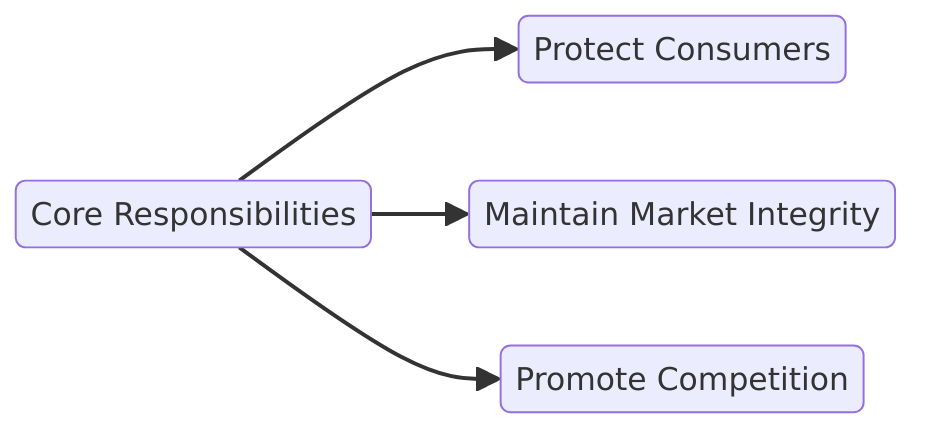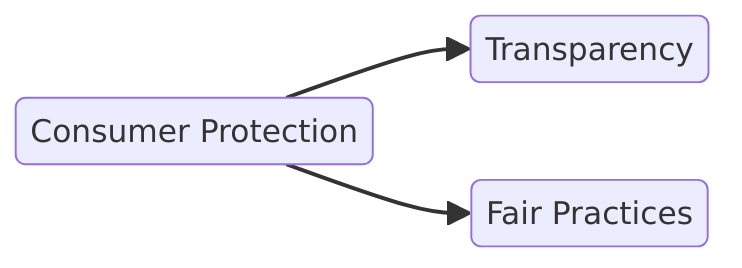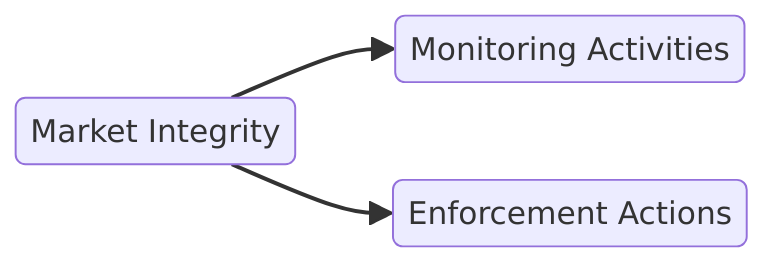Understanding FCA: How It Protects UK Traders
Discover how the FCA protects UK traders with robust regulations, transparency standards, and fund protection schemes. Learn why FCA-regulated brokers are the safest choice.
 Writen by:
Arslan Ali But
24 January 2025
8 minutes read
Writen by:
Arslan Ali But
24 January 2025
8 minutes read


The Financial Conduct Authority (FCA) is a cornerstone of the UK's financial system, established to regulate and oversee financial markets, ensuring fairness and transparency. Its primary role is to protect traders and consumers while maintaining the integrity of the financial ecosystem.
In a market as vast and dynamic as the UK’s, the presence of a regulatory body is essential to safeguard traders from fraud, misconduct, and systemic risks. From forex and stocks to fintech innovations, the FCA enforces strict guidelines to promote fair practices.
This article explores how the FCA operates, its key responsibilities, and the benefits it offers to UK traders.
What is the FCA?
The Financial Conduct Authority (FCA) is the UK’s independent regulatory body responsible for overseeing financial markets and ensuring that financial services operate fairly, transparently, and securely. Established in 2013, the FCA replaced the Financial Services Authority (FSA) as part of regulatory reforms following the 2008 financial crisis.
Operating independently of the government, the FCA is funded by the firms it regulates but remains accountable to the UK Parliament. Its primary focus is to create a financial system that benefits consumers, businesses, and the economy.
Core Responsibilities:
- Protect Consumers: Safeguard traders and investors from financial scams, fraud, and unfair practices.
- Maintain Market Integrity: Ensure financial markets function efficiently and transparently.
- Promote Competition: Encourage innovation and fair competition to benefit consumers with better products and services.

For example: The FCA oversees more than 50,000 financial firms, ranging from forex brokers and asset managers to payment processors and credit providers. Its scope includes enforcing compliance, monitoring market behavior, and addressing misconduct.
By maintaining strict regulations and implementing proactive measures, the FCA aims to uphold confidence in the UK’s financial ecosystem while protecting traders from potential risks.
FCA’s Key Responsibilities
The Financial Conduct Authority (FCA) plays a crucial role in maintaining the UK’s financial ecosystem. Its responsibilities are broadly categorized into three key areas:
a. Consumer Protection
The FCA ensures that financial firms act in the best interest of consumers by promoting fairness, transparency, and accountability.
- Transparency: Firms must clearly disclose all fees, risks, and terms associated with financial products. For instance, brokers are required to provide detailed information about spreads, commissions, and leverage risks to traders.
- Fair Practices: Firms must not engage in misleading advertising or deceptive practices. The FCA regularly reviews marketing materials to ensure they are accurate and not overly promotional.
For instance: In 2023, the FCA issued fines exceeding £10 million to several brokers for failing to provide clear risk warnings to retail clients.

b. Market Integrity
The FCA safeguards the financial markets by preventing fraud, insider trading, and price manipulation. It enforces strict reporting and transparency standards to maintain trust and stability.
- Monitoring Activities: Firms are required to report suspicious transactions and adhere to strict compliance guidelines.
- Enforcement Actions: The FCA imposes heavy fines and sanctions for violations.
For instance: In 2023, FCA fines exceeded £300 million for breaches related to transparency and insider trading rules, signaling its commitment to market integrity.

c. Promoting Competition
The FCA fosters innovation by encouraging fair competition among financial service providers.
- Fintech Growth: It licenses fintech firms to introduce new trading technologies, such as algorithmic trading and AI-driven platforms.
- Market Accessibility: The FCA ensures that consumers have access to a wide range of products at competitive prices.
The licensing of multiple fintech firms in 2023 boosted competition, making trading platforms more affordable and feature-rich for consumers.
Through these responsibilities, the FCA ensures that the UK’s financial markets remain fair, transparent, and consumer-centric.

Investor Protection Measures
The Financial Conduct Authority (FCA) employs several investor protection measures to ensure traders’ funds and interests are safeguarded. These measures focus on providing security, transparency, and accountability.
a. Financial Services Compensation Scheme (FSCS)
The FSCS protects traders in cases where a regulated broker fails.
- Coverage: Traders are eligible for compensation of up to £85,000 per person per firm.
- Security Net: This measure reassures investors, particularly during financial turbulence or company insolvency.
Example: If an FCA-regulated broker like IG were to fail, the FSCS would compensate eligible clients within the coverage limits.
b. Segregation of Client Funds
The FCA mandates that brokers separate client funds from their operational accounts.
- Objective: This ensures traders’ money is protected even if the broker faces financial difficulties.
- Implementation: Funds are typically held in designated bank accounts, preventing misuse.
Example: eToro UK complies with these regulations by maintaining segregated accounts for client funds, ensuring financial transparency.
c. Risk Warnings
Firms must display prominent risk disclosures to educate traders about potential losses.
- Importance: This measure ensures traders are fully informed of the risks associated with leveraged trading.
Example: FCA-regulated brokers prominently display warnings such as “76% of retail CFD accounts lose money” to highlight potential risks.

These protective measures exemplify the FCA’s commitment to safeguarding traders and maintaining trust in the UK financial markets.
FCA and Transparency in Trading
Transparency is a cornerstone of the Financial Conduct Authority’s (FCA) mission to ensure fairness in the UK trading ecosystem. The FCA requires all regulated brokers to uphold high standards of openness and accountability in their operations.
Regular Audits and Reporting
FCA-regulated brokers must undergo regular audits to verify compliance with financial and operational standards.
- Annual Reports: Brokers are mandated to publish annual financial statements, providing clients with clear insights into their financial health and operational practices.
- Accountability: These audits reduce the risk of mismanagement or fraudulent activity, reinforcing trust in the trading environment.
Clear Pricing Structures
The FCA enforces clear and upfront pricing structures, minimizing the risk of hidden fees.
- Brokers must disclose all costs associated with trading, such as spreads, commissions, and overnight fees.
- This ensures that traders can make informed decisions without unexpected expenses.
By mandating transparency, the FCA fosters a secure and trustworthy trading environment, empowering traders with the information needed to trade confidently.

Benefits of Trading with FCA-Regulated Brokers
Choosing an FCA-regulated broker offers numerous advantages, ensuring a secure and reliable trading experience.
Fair Practices and Strict Compliance
FCA-regulated brokers adhere to strict guidelines designed to protect traders, ensuring transparency, fair treatment, and compliance with market standards. These measures significantly reduce the risk of fraud and malpractice.
Dispute Resolution Mechanisms
Traders can resolve conflicts through the Financial Ombudsman Service, which provides impartial resolutions for complaints against financial firms.
Fund Protection
Under the Financial Services Compensation Scheme (FSCS), client funds are protected up to £85,000 if a broker becomes insolvent. This offers peace of mind, especially in uncertain market conditions.
Fact: In 2023, 80% of UK traders listed FCA regulation as a decisive factor when selecting a broker, reflecting the authority’s reputation for ensuring safe trading environments.
By choosing FCA-regulated brokers, traders gain access to trusted services, fund security, and a robust framework for resolving disputes effectively.

Common Challenges and Criticisms of the FCA
While the FCA plays a vital role in safeguarding UK traders, it faces several challenges and criticisms.
Delays in Addressing Misconduct
Investigations into financial misconduct can take years, leaving affected traders vulnerable during prolonged legal proceedings. Critics argue that the FCA’s pace in resolving cases needs improvement to provide timely justice.
Limited Power in Cross-Border Fraud
The FCA’s authority is limited to UK-regulated firms, creating challenges in combating scams originating from unregulated or offshore entities.
Example: In 2023, unregulated forex scams targeting UK traders increased by over 25%, exploiting the FCA’s inability to enforce actions against foreign fraudsters.
Perceived Over-Regulation
Some industry participants view the FCA’s stringent requirements as burdensome, particularly for smaller firms, potentially stifling innovation.
Despite these challenges, the FCA continues to adapt its policies to address emerging threats while maintaining its commitment to protecting traders and fostering trust in UK financial markets.

Conclusion
The Financial Conduct Authority (FCA) plays a pivotal role in safeguarding UK traders by ensuring fair practices, promoting transparency, and protecting funds through robust regulatory measures. Trading with FCA-regulated brokers not only offers peace of mind but also ensures access to mechanisms like the FSCS and Financial Ombudsman Service for additional security.
Before trading, always verify a broker’s FCA status to ensure compliance with the highest standards.
Ready to trade with confidence? Explore trusted FCA-regulated platforms at WhereToTrade and start your trading journey on a secure foundation today.
Table of contents
1. What is the FCA? 2. FCA’s Key Responsibilities 3. Investor Protection Measures 4. FCA and Transparency in Trading 5. Benefits of Trading with FCA-Regulated Brokers 6. Common Challenges and Criticisms of the FCA 7. Conclusion






